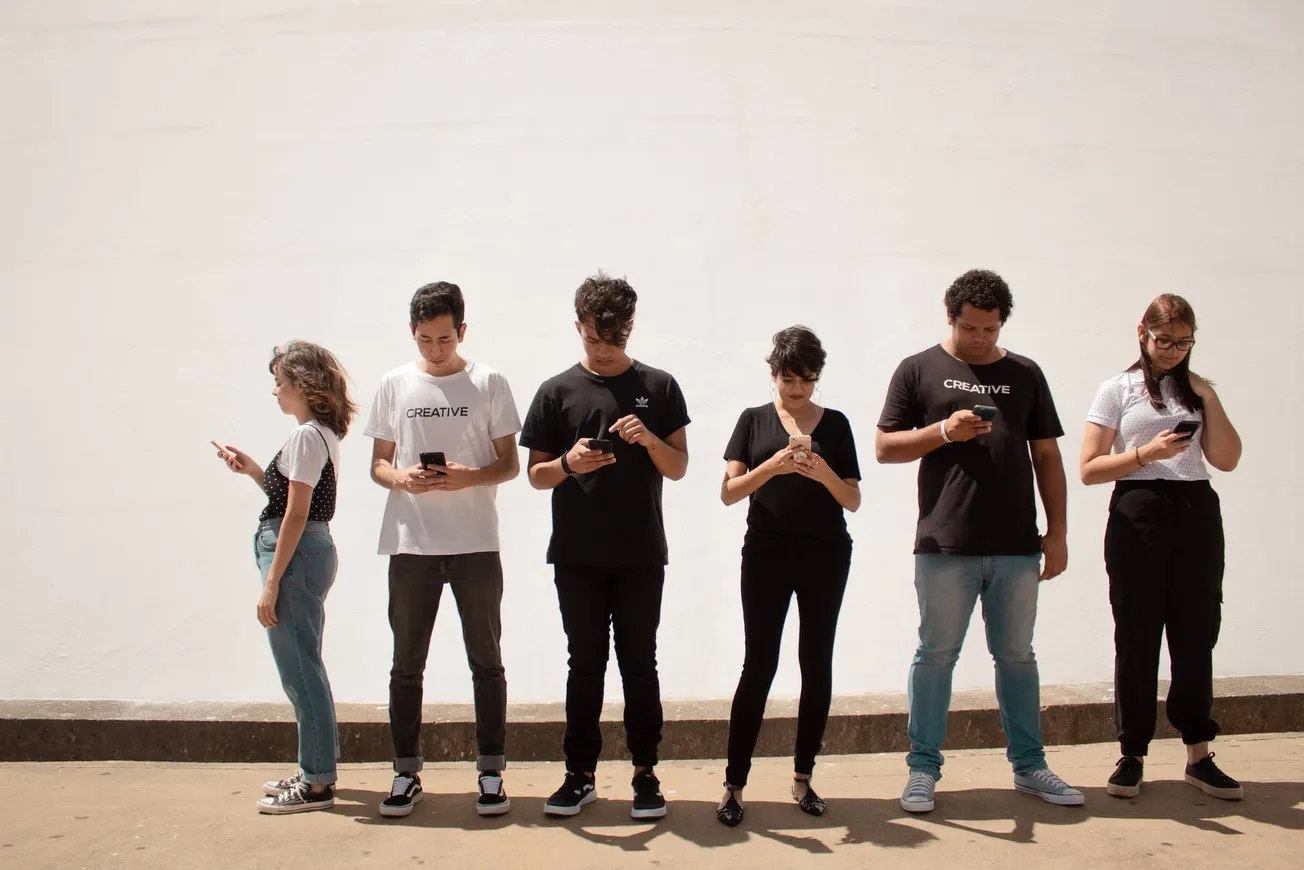Table of Contents
To paraphrase the Eagles, are we all just prisoners of our own devices?
Certainly, many of us are starting to wonder. A friend of mine recently posted on Facebook that, “If someone would have told me in the 80’s that my life in 2022 would be largely revolving around and dependent upon red notifications on a pocket computer I’d have had no fucking idea what it even meant”. (And, yes, I’m fully aware of the irony of what I just wrote.)
In fact, that particular friend ditched Facebook for quite some time. Likewise, I was banned from the platform for months, before grudgingly creating a new profile. Now I wonder, did I make a mistake? There is a small but growing movement of people who’d say that I did.
In a world where many of us are glued to our smartphones, Dulcie Cowling is something of an anomaly – she has ditched hers.
The 36-year-old decided at the end of last year that getting rid of her handset would improve her mental health. So, over Christmas she told her family and friends that she was switching to an old Nokia phone that could only make and receive calls and text messages.
I told myself I was only creating a new account for the convenience of Messenger, and that I was going to limit my posting to the occasional meme or photo — and absolutely not get drawn into politics and online arguments.
That’s almost been true.
But aside from getting inexorably sucked into just what I promised to avoid — because I can’t stop others from posting their stupid opinions and I can only bite my tongue so much — it’s obvious that social media is a mental cancer that insists on metastasising.
She recalls that one of the pivotal moments that led to her decision was a day at the park with her two boys, aged six and three: “I was on my mobile at a playground with the kids and I looked up and every single parent – there was up to 20 – were looking at their phones, just scrolling away,” she says.
“I thought ‘when did this happen?’. Everyone is missing out on real life. I don’t think you get to your death bed and think you should have spent more time on Twitter, or reading articles online.”
My Facebook-free months were, I realise, retrospectively, much happier times. While there have certainly been benefits, mostly from being able to access Messenger again, there are growing downsides. For instance, reading a book is punctuated by almost robotic intervals of checking my phone. Watching a movie at home, there’s a constant compulsion to turn to imdb. Even writing is a constant battle not to slide over to the web browser and check social media.
Ms Cowling […] plans to use the time gained from quitting her smartphone to read and sleep more.
She’s not the only one.
Alex Dunedin binned his smartphone two years ago. “Culturally we have become addicted to these tools,” says the educational researcher and technology expert. “They are blunting cognition and impeding productivity” […]
He has become happier and more productive since he stopped using a smartphone, he says. Mr Dunedin doesn’t even have an old-fashioned mobile phone or even a landline anymore. He is instead only electronically contactable via emails to his home computer.
“It has improved my life,” he says. “My thoughts are freed up from constantly being cognitively connected to a machine that I need to feed with energy and money. I think that the danger of technologies is that they are emptying our lives.”
But, the reality of modern life is that devices and connectivity are often essential. Where else, after all, am I going to find a world of interesting news to bring to BFD readers?
However, Hilda Burke, a psychotherapist and author of The Phone Addiction Workbook, says there is a strong link between heavy device usage and relationship issues, quality of sleep, our ability to switch off and relax, and concentration levels.
I’ve noticed that there is a massive difference between how well and how much I sleep, depending on whether it’s prefaced by browsing or gaming, or reading (or even the passive vegetation of watching tv).
Odd as it may seem, there are device-based ways to wean yourself off devices. Consider it stomach-stapling for the brain.
For example, Freedom lets you temporarily block apps and websites so you can focus more. And Off The Grid enables you to block off your phone for a certain time period.
Ms Burke says it would be useful if more people monitored how much time they spend on their smartphone. “Starting to realise exactly how much time you’re frittering away each day on your phone can be a powerful wake-up call and catalyst for change.”
She also advises carving out short periods when you have your phone switched off or left at home, and gradually increase the wait period till you check it again.
BBC
My youngest son frequently urges ditching Facebook, even if you only keep Messenger. He recently checked, and his last post on Facebook was five years ago. “I guarantee you’ll be happier,” he says.
He’s a wise young man.









